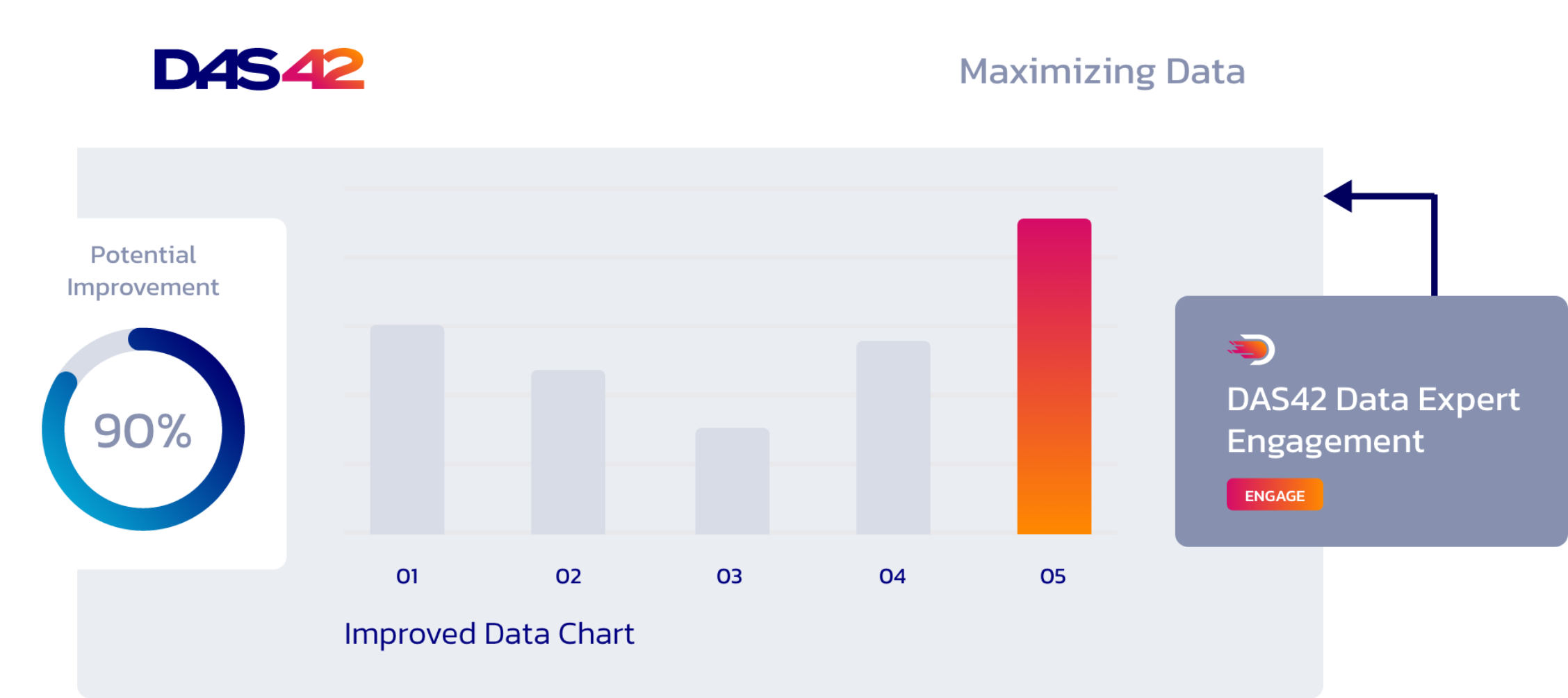A rapidly changing marketplace means B2B firms must consistently pursue every advantage to keep pace with the competition.
Your business needs to stay flexible and increase efficiencies wherever possible. This includes having firm understanding of every stage of your sales funnel.
CRM providers, likes Salesforce and Zendesk, offer some customization possibilities. But without the ability to properly align your sales and financial data, you’re still missing out on generating a complete picture of your business.
You can’t afford to overlook the ways data analytics delivers actionable insights into your sales performance. By converting data silos into a centralized, easy-to-access resource, you open new possibilities in understanding – and improving – your competitive advantage.
Improve revenue planning with clear sales cycle estimates
For many B2B firms, the time between the initial contact with a prospect and closing a deal can take months. Factor in the multiple approvals required for offerings in the technology industry, and that time frame grows even longer.
At the executive level, organizations need to understand how quickly leads progress through different stages of the sales funnel. Gaining an accurate representation of cycle times improves your ability to predict revenue for the coming sales period. The better your firm understands how and when leads and bookings convert to revenue, the more accurately you can forecast and calculate your results each period.
CRM software provides ready access to customer details, but it’s not going to offer a holistic picture. Invoicing and cash flow data is typically split into an enterprise resource planning (ERP) system. Once your data is centralized in Snowflake, you can merge your sales and finance information. From there, a business intelligence tool like Looker brings a wealth of information to light.
Offer stakeholders custom funnel visualizations with business intelligence tools
When you work with the right data partner, you can design custom dashboards that break down the core details of your sales funnel into a single view.
Rather than needing to log into different systems, both your CFO and CRO generate conclusions from the same trusted information. In Looker, your CRO may also access a dashboard that includes details about your sales teams, including specific regions, rep performance, and separate verticals. By contrast, the CFO’s dashboard will understand the timeframe between when your firm receives a booking and when that converts to cash.
Depending on your business needs, you can distribute these dashboards to executives every morning with self-serve analytics capabilities. Or your team leaders can generate and distribute reports to stakeholders.
But once you’ve gained access to the ability to create custom views of your business data, your potential to generate valuable insights extends in new directions.
Empower your sales teams with customer analytics
Your ability to combine data from multiple sources introduces an assortment of possibilities for custom analytics. As your sales reps approach customers about potential renewals or opportunities for expanded services, they’re better equipped to meet your conversion goals.
Your customer data reveals a wealth of information. At DAS42, we’ve worked with different SaaS companies with annual customers who have purchased a number of licenses for their team. By building a dashboard that places usage data alongside customer information, your sales rep can deliver a more targeted approach to suit the customer’s needs
For example, imagine a customer has been sold 20 software licenses, but only 10 of their users have logged in. On one hand, the customer seems unlikely to either renew or expand their use of your product. Once you understand your customer’s adoption rate issue, your sales rep can reach out to arrange further training. In the process, the rep places your firm in a stronger position for a renewal.
Along with improving the position of your sales teams, a customer health dashboard prevents your firm from being blindsided. If your representative recognizes a client up for renewal who has submitted unresolved support tickets, your team can proactively reach out to offer a solution.
By offering greater recognition of the factors behind customer satisfaction, data allows you to resolve an issue before it starts.
Ensure accurate funnel analysis with unified data entry rules
Incorporating Salesforce with your broader data program opens new avenues for reviewing funnel performance. But before you can unify your data sources, you have to establish data governance. Ensuring every department inputs information that’s consistent and accurate doesn’t just deliver clearer conclusions; it builds trust in your data.
You have to enforce data entry and validation rules at every point of entry, including Salesforce. Looker allows you to build data-driven workflows into your CRM platform. But without effective data management, your systems won’t communicate properly.
For example, some of your sales reps could label a prospect in a given industry as “Media and Entertainment” while others use “M and E.” Salesforce may include multiple variations of a given category, which may result in duplicates as you centralize your data.
Before you can begin integrating your data, you have to understand your analytics use cases to inform how your teams enter and compile information. Once you’ve set guidelines for master data management that limits categories to an agreed-upon set of verticals, your teams can generate trusted results from funnel analytics.
Analytics underscores the details behind your sales data
Data opens a clearer path to your sales goals. It can illustrate your customer’s journey from prospect to paying client or provide insights into their ongoing needs. Modern tools bring a wealth of information to your fingertips.
But when critical information is divided across multiple platforms, your sales reps aren’t the only part of your organization impacted. If you can’t generate a clear view of your customer’s needs and behavior patterns, your business operates at a disadvantage.
Combining disparate data silos into a centralized, trusted resource isn’t a simple undertaking. But you don’t have to attempt it alone. Across multiple industries, DAS42 has the expertise and experience to help your sales teams access the information they need to compete. If this sounds like a potential benefit for your business, let’s talk.
Services provided







